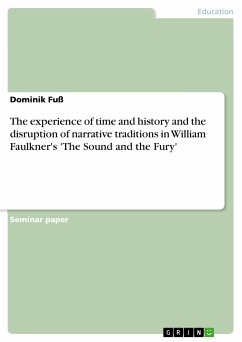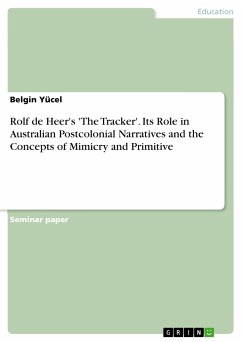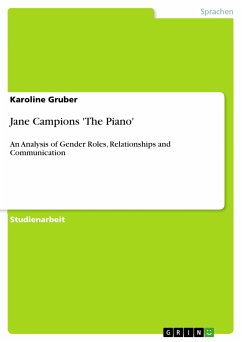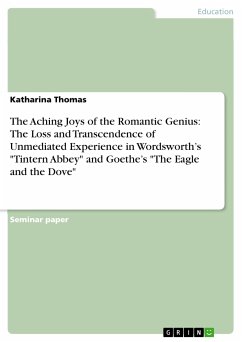Seminar paper from the year 1997 in the subject Didactics for the subject English - Literature, Works, grade: 1,00, Catholic University Eichstätt-Ingolstadt, course: Modernist fiction: William Faulkner’s novels, language: English, abstract: The task of the present seminar paper is a threefold one though there may only be two primary elements discerned when one reads the topic first. The first one, “experience of time and history“, is solely concerned with The Sound and the Fury (intra-textual part) whereas the second one “the disruption of narrative traditions“ necessarily takes other works into account (inter-textual part). The former constitutes a close textual analysis of the two notions of “time“ and of “history“ as seen through the eyes of the major characters, it is therefore centred on content; the latter focuses on technical and stylistic questions and is correspondingly centred on form. Nevertheless, the treatment of the first part must be divided in two since the terms “time“ and “history“ though they are similar in that they are both “diachroni-cal“ actually are quite different. Time in itself may be regarded as some sort of naked or unreflected history, a primary experience of the succession of events which has not been ordered and put together yet. History is the usually ordered and documented and thereby secondary portrayal of time by human societies; it is generally subdivided into - according to its relevance for society as a whole - social, political, national, regional, economic, religious history etc. or family and individual history. I will only focus on family and individual history here since other aspects are of lesser relevance in The Sound and the Fury . One chapter is dedicated to each of the three elements of the topic, of which the first one - time - is the most important as it serves as basis for the compre-hension and approach of the two other parts.
Bitte wählen Sie Ihr Anliegen aus.
Rechnungen
Retourenschein anfordern
Bestellstatus
Storno









